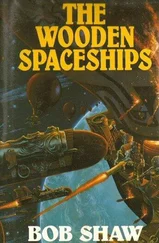Peter Pišťanek - The Wooden Village
Здесь есть возможность читать онлайн «Peter Pišťanek - The Wooden Village» весь текст электронной книги совершенно бесплатно (целиком полную версию без сокращений). В некоторых случаях можно слушать аудио, скачать через торрент в формате fb2 и присутствует краткое содержание. Год выпуска: 2008, Издательство: Garnett Press, Жанр: Современная проза, на английском языке. Описание произведения, (предисловие) а так же отзывы посетителей доступны на портале библиотеки ЛибКат.
- Название:The Wooden Village
- Автор:
- Издательство:Garnett Press
- Жанр:
- Год:2008
- ISBN:нет данных
- Рейтинг книги:3 / 5. Голосов: 1
-
Избранное:Добавить в избранное
- Отзывы:
-
Ваша оценка:
- 60
- 1
- 2
- 3
- 4
- 5
The Wooden Village: краткое содержание, описание и аннотация
Предлагаем к чтению аннотацию, описание, краткое содержание или предисловие (зависит от того, что написал сам автор книги «The Wooden Village»). Если вы не нашли необходимую информацию о книге — напишите в комментариях, мы постараемся отыскать её.
The Wooden Village — читать онлайн бесплатно полную книгу (весь текст) целиком
Ниже представлен текст книги, разбитый по страницам. Система сохранения места последней прочитанной страницы, позволяет с удобством читать онлайн бесплатно книгу «The Wooden Village», без необходимости каждый раз заново искать на чём Вы остановились. Поставьте закладку, и сможете в любой момент перейти на страницу, на которой закончили чтение.
Интервал:
Закладка:
“Nobody’s going believe you,” says Žofré. “How are you going to explain to them that you’re alive after falling from the sixth floor?”
“Hmm, that’s a fact,” Junec admits in English.
“Besides, Rácz has the police under his thumb, too,” says Žofré. “And when he finds out that you’re still alive, he’ll have you killed again. He wants to make an impression on that hooker.”
“That dirty whore!” Martin adds, now that he remembers whom he has to thank for all this.
“Leave the country,” Žofré advises him. “You simply have to disappear. Go and find Edna. Marry her. Love is the best cure for everything. Real devoted love. And never come back here; this country belongs to the Ráczes of this world. After all, an American, a real American, doesn’t need to do business in Slovakia.”
Martin stops to think. “I think you’re right, Žofré,” he says.
Žofré stretches his hand out to him. “Let’s say our good-byes,” he says. “That Hruškovič business was a blow below the belt from you, but screw it! I realize you must have had it up to here with me. Now that my mission is finished, I’ll leave you. But don’t ever be unfaithful to Edna. If I find out that you’re seeing other women, I’ll come and make myself known to you. Good-bye!”
Martin tries to shake the hand that Žofré is offering, but his fingers pass through immaterial, slightly warm mist.
“Good-bye, Žofré,” says Martin, “and forgive me.”
Žofré smiles and closes his eyes… and dissolves in front of Martin.
Martin sighs. Then he puts his hands in his pockets and nervously looking around, heads for a night hamburger stall whose lights are flashing in the distance near the taxi stop. There he buys two cheeseburgers and a paper cup of chips with ketchup. He washes his meal down with a can of Pepsi. After his vertiginous fall from the sixth floor, he feels hungry. He eats and reflects on what he’s going to do with his new lease of life.
The vision of a future with Edna at his side makes him quite enthusiastic. So much so that when, with a full stomach, he gets into a taxi that will take him to Vienna, he smiles contentedly.
* * *
It seems like a good idea to take the taxi to Vienna, since it is the closest civilised city and it takes less than an hour to get there. He needs to feel safe: only when he is at Vienna airport does he feel he is beyond the reach of Rácz’s tentacles.
From Vienna, Martin takes a jumbo jet to Hong Kong; from Hong Kong he flies to Manila, spending a night in a hotel, and in the morning he hires a Lear jet from a small charter company. From Manila he flies to the southern Philippines and from there, after taking on more fuel, he makes it as far as Port Moresby in New Guinea.
In Port Moresby, Martin takes a taxi to the local branch of the Smithsonian Institute, the address Edna left him.
“I’m sorry,” a polite institute employee tells him, “at the moment Dr Gershwitz is on the island of…” the employee consults his documents, “Kalalau.”
“Where’s that, for God’s sake?” Junec asks in alarm.
The employee takes the map of Oceania and turns it so Martin can see. “Here,” he says and points a finger, “It’s north of the Wallis Islands between Funafuti and the Tokelau Archipelago.”
“There’s nothing there,” says Martin, disappointed.
“But there is,” says the employee. “It’s just not visible on the map.”
“How do I get there?” Martin asks.
“You fly to Fiji and then take a boat to Futunu. From Futunu there’s a mail boat to Kalalau.”
“How often?” Martin asks.
“Quite often in summer,” says the Smithsonian Institute employee. “Every month.”
“I need to speak to Miss Gershwitz right away,” insists Martin.
“I’m afraid that won’t be possible,” the employee smiles politely.
Martin runs out of the building and stops a cab. “To the airport,” he orders. “Hurry!”
The chartered Lear jet is still parked, taking on fuel. Martin runs up the steps into the cockpit. The surprised pilots look round nervously.
“I’m glad you’re still here,” says Martin. “I’ve got another job for you.”
Soon they’re crossing the wide ocean.
“The Solomon Islands,” says the pilot, pointing to forested land below.
“How much further?” Martin asks.
“Another eighteen hundred kilometres. That gives you two and a half hours,” says the pilot.
Martin nods and leaves the cockpit. He takes his seat. A nice slant-eyed flight attendant brings him coffee and a dessert. Martin eats the cake, drinks his coffee and falls asleep.
A tactful hand on his shoulder wakes him. The flight attendant is over him. “It’s time, sir,” she says.
Martin follows her into the cockpit. The pilot shows him a tiny speck on the map and then points at the window. There is a small green island below.
“Kalalau,” he says.
“Are you sure?” Martin asks.
“A hundred per cent,” replies the pilot.
“Okay,” says Martin and pulls out a cheque book. “How much do I owe you?” he asks.
When Martin has paid the crew of the Lear jet, the co-pilot brings a parachute. With the help of the crew, Martin puts it on. He moves towards the exit.
“You don’t have to do anything after you jump,” the co-pilot tells him. “Just count to ten and pull this firmly.” He points to a metal ring hanging on the left shoulder strap. “And then you can steer with the two strings you’ll see when the parachute opens.”
“Don’t be afraid,” the pilot tells him.
“I’m not,” says Martin. “I had a go at something like this recently.”
He smiles at the slant-eyed attendants. The co-pilot turns a wheel and noisily opens the cabin door. The wind enters the cabin together with the roar of the jet engines. Martin makes for the door. He firmly grabs the handle. Below shines the sea. Land is looming up somewhere on the right.
“Now!” shouts the co-pilot. Martin takes a deep breath and throws himself into the void. He counts to ten and pulls the ring. There is a sound of folded silk opening, and Martin is jerked up in the air. The fast dive has shaken him up. The roar of the passing aeroplane soon dies away. He can see tiny figures, natives running along the blindingly yellow beach towards the place they reckon he will land.
Junec lands in warm shallow surf. He immediately stands up and unbuckles the straps. He heads towards the natives. Some children quickly try to pull the soggy parachute out of the water. From the crowd of local natives an old man sets out, dressed like others in a flowery sarong, but with an amulet hanging round his neck. When the old man comes closer, it turns out that the amulet is an empty flattened can of Fanta.
Martin realises that he is dealing with the village chieftain. He puts his hand on his chest and says: “Martin Junec.”
The chieftain smiles.
Martin points significantly to the sky. “I…” he says, “fly… big iron bird…”
Martin accompanies each word with a pantomime, solemn, but easy to understand, together with grimaces copied from films about Indians.
“My wife… here… A white wife… from far away… Doctor Edna Gershwitz… Here… Kalalau… I’ve come to get her… I love her…”
Martin points at his heart.
The old man spits out the betel he is chewing and smiles broadly, showing teeth blackened by the betel.
“I fully understand your predicament, sir,” he says. “It’s just that you are not in Kalalau. This is Aumaoua. My name is Tioka the Third: I am king here. Kalalau is about one hundred and fifty kilometres that way.”
The king points his brown hand with its glittering bracelets to the open sea.
Читать дальшеИнтервал:
Закладка:
Похожие книги на «The Wooden Village»
Представляем Вашему вниманию похожие книги на «The Wooden Village» списком для выбора. Мы отобрали схожую по названию и смыслу литературу в надежде предоставить читателям больше вариантов отыскать новые, интересные, ещё непрочитанные произведения.
Обсуждение, отзывы о книге «The Wooden Village» и просто собственные мнения читателей. Оставьте ваши комментарии, напишите, что Вы думаете о произведении, его смысле или главных героях. Укажите что конкретно понравилось, а что нет, и почему Вы так считаете.












